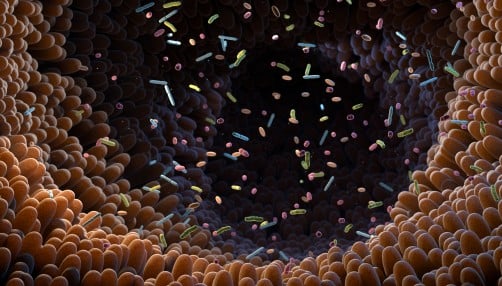UPDATE: A groundbreaking study from UCLA Health reveals that a child’s gut bacteria may significantly influence their risk of developing mental health issues such as depression and anxiety as they grow. The findings, published in Nature Communications, underscore the critical role gut microbiomes play in shaping emotional health during key developmental years.
The research indicates that children with a higher presence of bacteria from the Clostridiales order and Lachnospiraceae family in their gut at 2 years old showed increased risks of internalizing symptoms by age 7½ years. This encompasses both depression and anxiety, marking a disturbing trend that parents and healthcare professionals need to be aware of.
Study senior author, Dr. Bridget Callaghan, emphasizes the importance of these findings, stating, “Our study provides early evidence that gut microbes could help shape mental health during the critical school-age years.” The research suggests that the composition of early gut bacteria is linked to brain connectivity patterns associated with emotional regulation, which can lead to anxiety and depression later in childhood.
The study analyzed data collected from the Growing Up in Singapore Towards Healthy Outcomes (GUSTO) study, a longitudinal project that has tracked various health metrics of children in Singapore. The research team examined stool samples taken from participants at age 2 years, brain scans at age 6 years, and behavioral surveys from caregivers. This comprehensive approach allowed researchers to identify how gut microbiome profiles correlate with emotional health indicators.
Dr. Callaghan noted that previous investigations into the gut-brain axis primarily focused on infants and toddlers, with less emphasis on school-aged children. This new study shifts the focus to a critical period when signs of depression and anxiety typically emerge.
The findings reveal a troubling association between specific gut microbes and emotional health, suggesting that certain bacteria may be more sensitive to stressors. It raises urgent questions about how early intervention could mitigate potential mental health challenges in children.
Looking ahead, researchers are keen to explore the causal relationships between gut microbes and emotional health. “We need to figure out what species within these larger groups are driving the findings,” Dr. Callaghan stated. She highlighted that interventions could include dietary changes or probiotics, which may help alter the gut microbiome positively.
This study marks a significant step in understanding the complex interplay between gut health and mental wellness, emphasizing the need for early monitoring of children’s microbiomes as part of holistic health assessments.
Parents, educators, and health professionals should be vigilant about these findings, as symptoms of depression and anxiety can persist into adolescence and adulthood if left unaddressed. The implications of this research could pave the way for new preventative strategies in mental health care.
As more studies emerge, the connection between gut health and emotional well-being is likely to become a focal point in pediatric health discussions. For an in-depth look at the study, please refer to the full article in Nature Communications.
Stay tuned for more updates as this important research develops.







